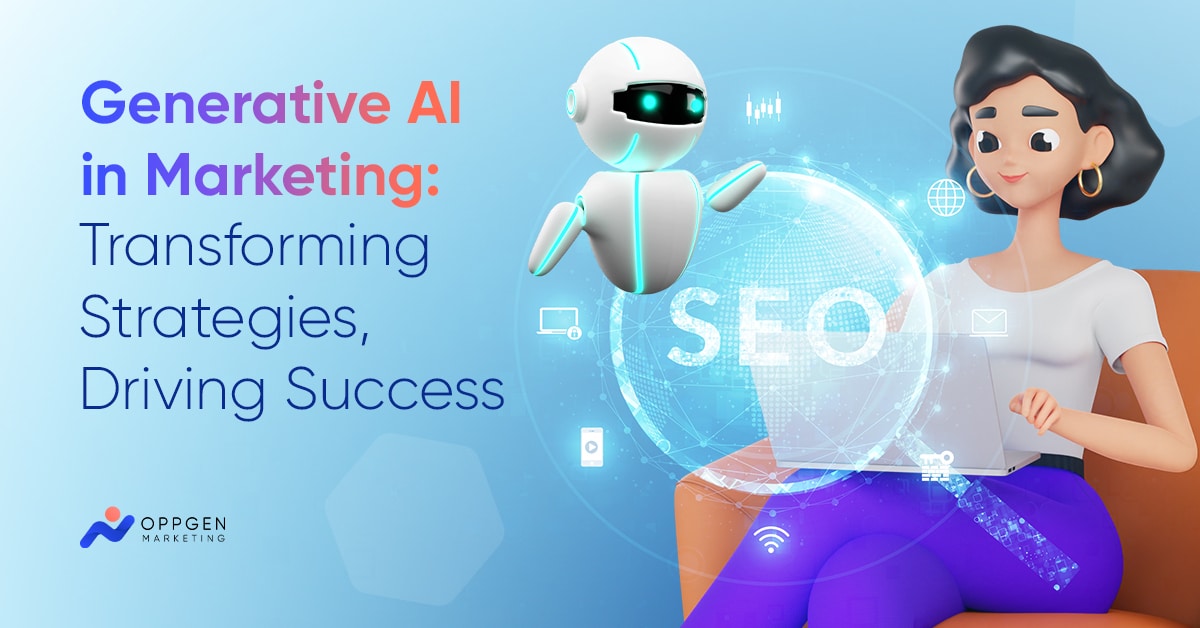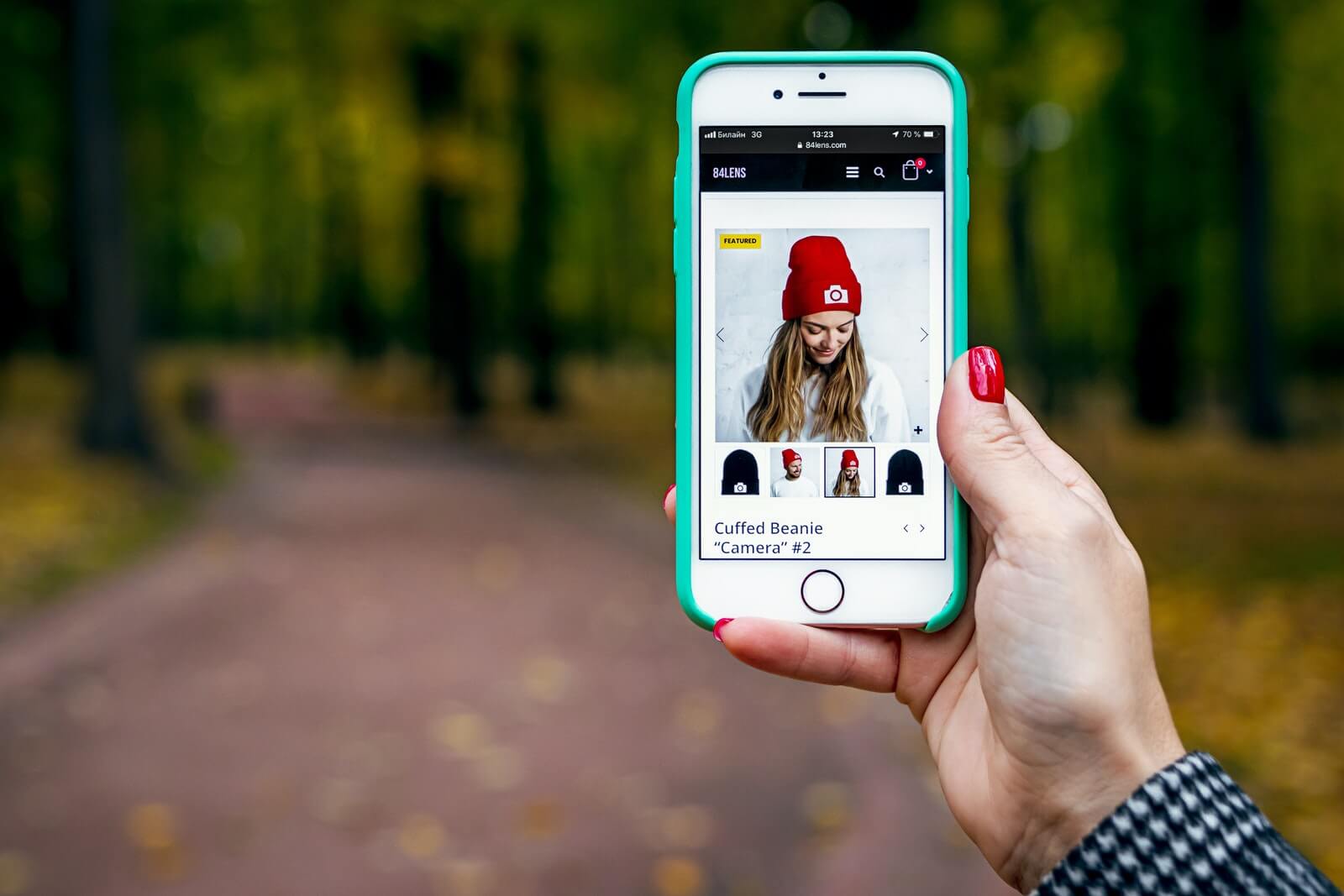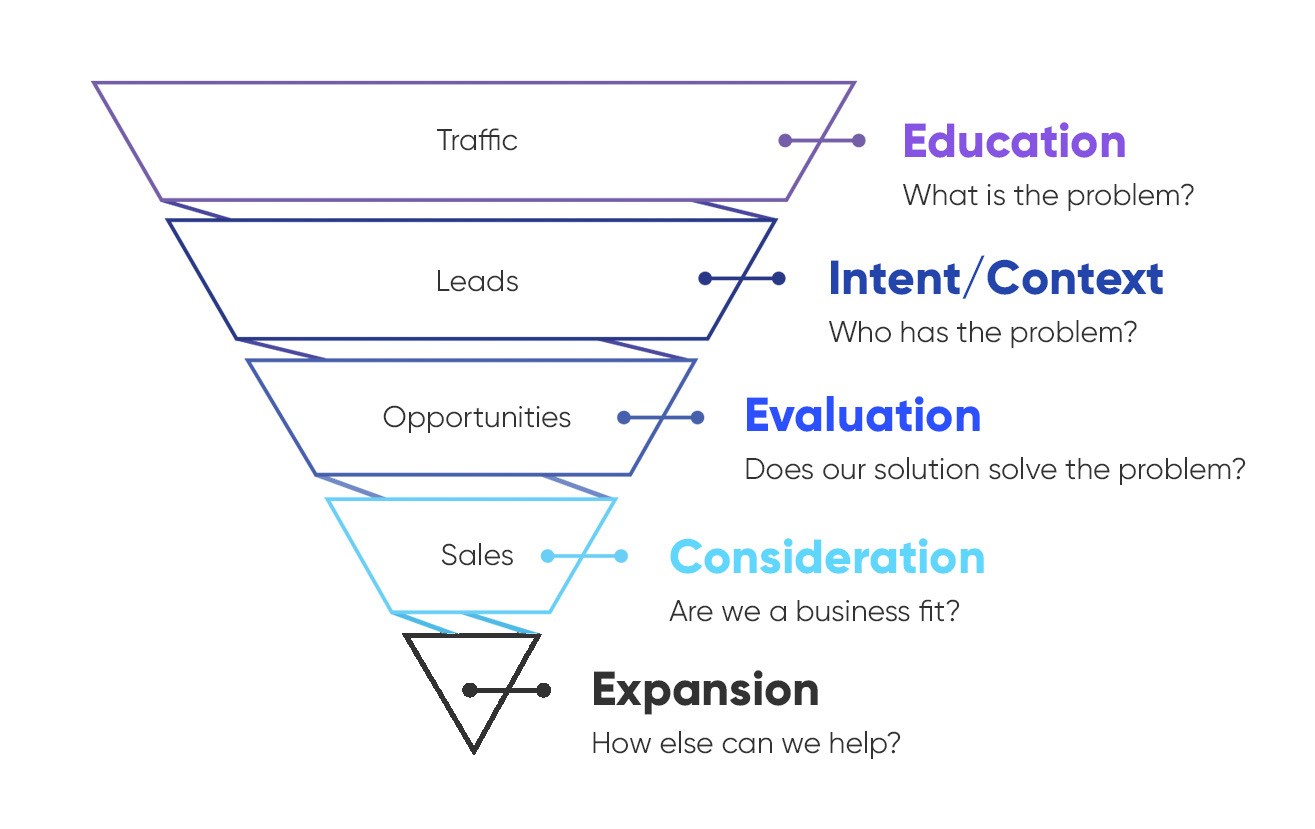Generative AI in Marketing: 6 Ways to Level Up Your Results
Generative AI is revolutionizing the marketing world.
It’s also empowering businesses and agencies with tools for all types of content creation. Generative AI is helping us create content and connect with their audiences on a scale (and at a speed) that’s difficult to fathom.
And, it’s only getting better and smarter.
According to a survey by Salesforce, 55% of marketers are already using generative AI in marketing, with another 22% planning on adopting it in the near future.
AI technology is evolving fast.
Marketers can now use AI tools to:
- Design and ideate market-changing strategies (in record time)
- Create marketing assets at scale: headlines, topics, titles, subject lines, blogs, sales pages, email campaigns, sales copy, images, and even video
- Boost content creation and content-driven results at warp speed
In this article, we’ll explore how generative AI in marketing is changing the game for marketers and advertisers.
TL;DR: What We’ll Be Covering Today
- What is Generative AI?
- What’s The Role of Generative AI in Marketing?
- 6 AI Use Cases in Marketing and Advertising
- Transforming Marketing: Benefits of Generative AI
- Concerns Around Generative AI
- 4 Steps to Get Started With Generative AI in Marketing
- In Closing
What is Generative AI?
Generative AI refers to a subset of artificial intelligence that can generate new content, ideas, or solutions based on input data.
Traditional AI models follow a set of predefined rules.
Generative AI uses machine learning models to create original content, like text, images, video, and even music.
This technology can mimic human creativity and produce outputs that—with the right guidance—are difficult to distinguish from 100% human-created content.
What’s the Role of Generative AI in Marketing?
Generative AI in marketing enables brands to create personalized and engaging content at scale.
It helps marketers automate repetitive tasks, optimize campaigns, and generate insights from massive amounts of data.
Businesses using generative AI can triple their marketing efforts, increase efficiency, and improve customer experiences.
6 AI Use Cases in Marketing and Advertising
1. Generative AI in Marketing Sales
Generative AI can assist sales teams by:
- Creating personalized email marketing campaigns
- Generating sales pitches
- Simulating customer interactions
This technology can analyze customer data to tailor messages that resonate with individual prospects, increasing the likelihood of conversions.
For example, using a tool like Mailchimp with its AI-powered Content Optimizer, you can generate personalized email content tailored to individual recipient preferences.
The AI analyzes past interactions and behaviors to suggest subject lines and body text that are more likely to engage each specific user.
2. AI in Digital Advertising Campaigns
In advertising, generative AI can create hyper-targeted ad campaigns by analyzing consumer behavior and preferences. It can generate
- Ad copy
- Design visuals
- Ad placements to reach the right audience at the right time
This leads to more effective and cost-efficient personalized marketing campaigns.
Using Facebook’s AI-driven ad platform, you can create campaigns that target users based on detailed behavioral and demographic data. AI can identify users most likely to be interested in a new product based on their past interactions with similar products.
3. AI in Content Marketing
Generative AI can produce a wide range of content, from blog posts and social media updates to video scripts and product descriptions.
By using generative AI to create content, marketers can focus on strategic planning and creativity. This gives the power, tools, and resources to keep a consistent and engaging brand voice across all channels.
Jasper.ai can generate blogs, social media posts, product descriptions, and so much more. You can provide Jasper with a topic and some key points, and it will create a structured blog post that’s ready to publish.
4. AI Marketing Automation Tools
AI-powered marketing automation tools can
- Streamline workflows
- Manage campaigns
- Analyze performance data
Generative AI can enhance marketing tools by creating personalized content, predicting customer behavior, and providing actionable insights to improve marketing strategies.
Marketo Engage uses AI to analyze campaign performance and provide actionable insights. For instance, it can identify which segments of your audience are responding best to your campaigns and suggest adjustments to improve engagement.
5. AI-Powered Customer Insights
AI can analyze vast amounts of customer data to uncover insights into consumer behavior, preferences, and trends.
This information helps marketers segment their audience more effectively, personalize their messaging, and make data-driven decisions to enhance their marketing strategies.
Salesforce Einstein segments your audience based on detailed behavioral and demographic data. It can create segments for high-value customers, frequent buyers, or customers at risk of churning, allowing you to tailor your marketing efforts accordingly.
6. AI in Video Marketing
AI can automate video creation by:
- Generating scripts
- Editing footage
- Adding voice-overs
It can personalize video content based on viewer preferences and behaviors, making video marketing more effective and engaging. AI can also analyze video performance data to refine future content.
Magisto uses AI to edit and produce videos from raw footage. You upload your footage, select a theme and music, and the AI creates a polished video by picking the best clips and arranging them into a cohesive story.
Transforming Marketing: Benefits of Generative AI
Generative AI offers dozens of benefits for marketers:
- Increased efficiency and productivity by automating repetitive marketing tasks
- Enhanced personalization and customer engagement
- Improved data analysis and actionable insights
- Cost savings through optimized marketing strategies
- Greater scalability in content creation and campaign management
The greatest benefits of generative AI in digital marketing are increasing growth and scalability at breakneck speeds. And, it’s only getting faster and better.
Concerns Around Generative AI
While generative AI offers many advantages, there are also concerns to consider, such as:
- Ethical issues around AI-generated content
- Biases in AI algorithms
- Privacy and data security concerns
- The need for human oversight to ensure quality and accuracy
It’s best for companies, agencies, and marketers using generative AI to stay informed with the latest innovations, as well as the response from state and local municipalities.
4 Steps to Get Started With Generative AI in Marketing
Integrating generative AI into your marketing strategy can seem daunting, but with a structured approach and a little guidance, you can get so much more out of it.
Here’s how you can implement generative AI for marketing:
Step 1: Identify Specific Use Cases Where AI Can Add Value
Start by pinpointing areas in your marketing operations where generative AI can make the most significant impact. Common use cases include:
- Content Generation: Automate the generation of blog posts, social media content, and product descriptions.
- Personalized Content and Experiences: Create tailored email campaigns and recommendations based on customer behavior.
- Ad Optimization: Design and place ads that resonate with targeted audiences.
- Customer Interaction: Use AI-powered chatbots to provide instant responses to customer inquiries.
Step 2: Choose the Right AI Tools and Platforms
Select AI tools and platforms that align with your identified use cases and business objectives. Some effective AI tools for marketing include:
- OpenAI’s GPT-4 (and 4o): For generating high-quality content, text, images, and more.
- Canva’s Magic Resize: For automated design adjustments.
- HubSpot’s AI for Marketing: For AI-driven marketing automation.
- Adobe’s Sensei: For enhancing creative processes and customer experiences.
Evaluate these tools based on their features, ease of integration, cost, and support services.
Start with trial versions to test their effectiveness before committing to a purchase.
Step 3: Train Your Team to Use AI Effectively
Next, make sure your marketing team is well-equipped to use AI tools by providing comprehensive training. This can include:
- Training Calls, Workshops, and Webinars: Conduct sessions to introduce AI concepts and demonstrate tool functionalities.
- Online Courses: Enroll team members in AI and machine learning courses offered by platforms like Coursera or Udacity.
- Hands-on Practice: Encourage the team to experiment with AI tools on small projects to build confidence and expertise.
After you implement AI tools, continuously monitor their performance to make sure they’re moving you toward your marketing goals.
Key metrics to track may include:
- Traffic, Impressions, or Visibility: Are your top-level metrics growing, dropping, or staying stagnant?
- Engagement Rates: Measure how well AI-generated content is resonating with your audience.
- Conversion Rates: Assess the effectiveness of AI-driven campaigns in converting leads into customers.
- ROI: Calculate the return on investment for AI initiatives to determine their financial impact. Use analytics tools to gather data and generate reports, enabling you to make informed decisions about adjustments and improvements.
Step 4: Stay Updated on AI Advancements and Best Practices
The field of AI is rapidly evolving, with new developments and best practices emerging regularly. Stay informed by:
- Subscribing to Industry Newsletters: Follow AI-focused publications like MIT Technology Review or AI Weekly.
- Attending Conferences and Webinars: Participate in events like the World AI Summit to network with experts and learn about the latest trends.
- Joining Professional Networks: Engage with communities on platforms like LinkedIn to share knowledge and experiences with peers.
In Closing
By staying current with AI advancements, you can continually refine your strategies and maintain a competitive edge in the market.
By leveraging generative AI, marketers can create more personalized, efficient, and impactful campaigns––at lightning-fast speeds.
Want to take your business’s marketing and advertising results to the next level?
Contact OppGen to expand your brand’s marketing campaigns and get your business the best possible results.
Our team has over a decade of experience creating successful advertising and SEO campaigns.
We stay up-to-date with the latest in AI marketing tools and techniques, stacking those on with our years of experience to produce the best possible results for our clients.





